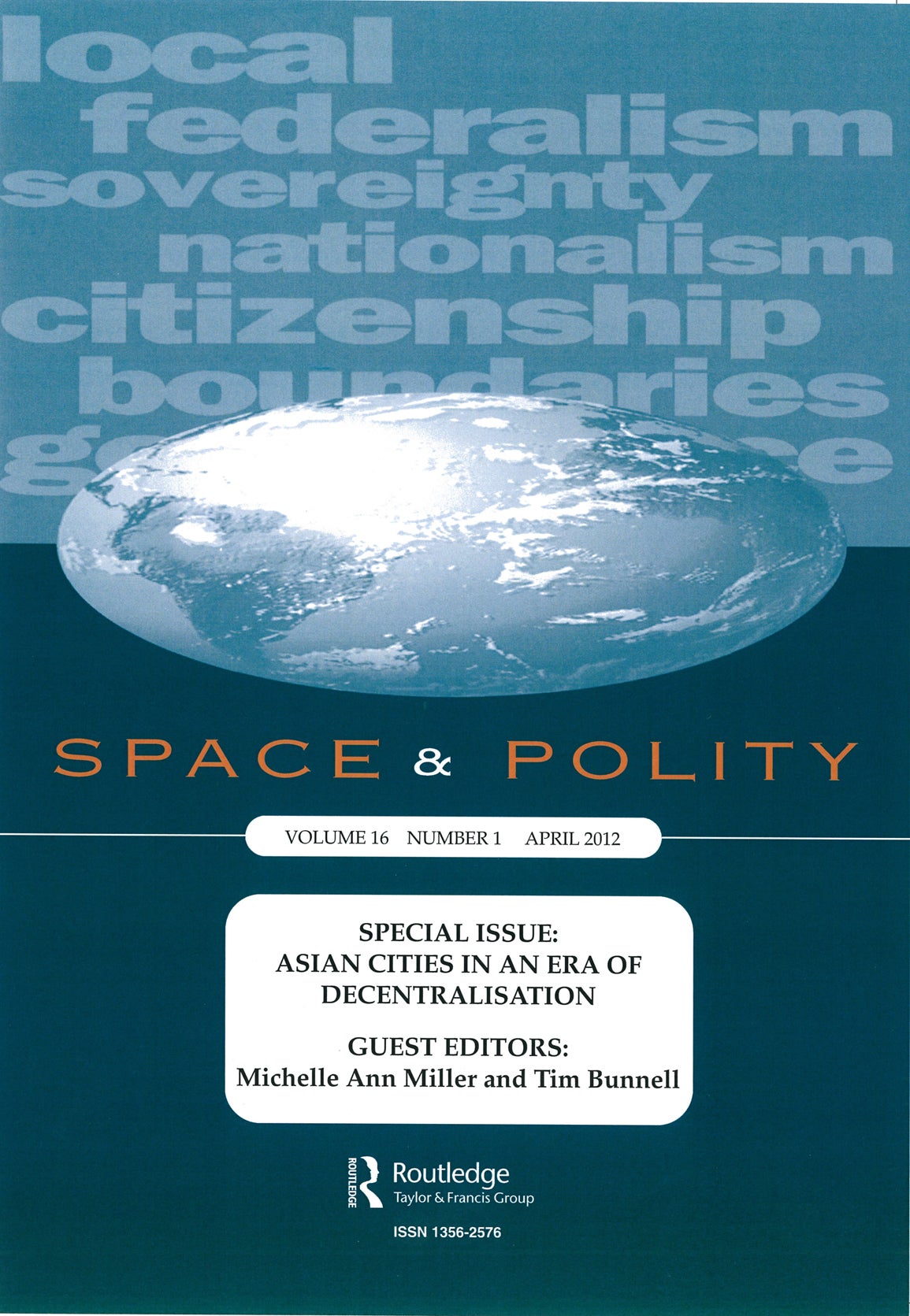Journals

Space and Polity – Special Issue: Asian Cities in an Era of Decentalisation (Vol. 16 No. 1)
| Author | : | MILLER Michelle Ann & BUNNELL TIM (guest eds) |
| Publication Date | : | 2012 |
| Publisher | : | Routledge, Abingdon, New York, USA |
The essays in this special issue critically engage with the conception of decentralization as empowering cities, urban regions and their residents to act innovatively and creatively. The contributions thus highlight how the term ‘empowerment’ in the context of decentralization regimes masks a competing array of intentions and agendas. Who and what (and to what ends) are ‘empowered’, given a ‘voice’ and allowed to ‘participate’ via the processes and structures of decentralization are too frequently assumed in normative conversations about ‘bringing government closer to the people’ and ‘community driven development’. Creating an illusion of a shared language and common set of priorities therefore obscures more complex realities, particularly when there is a disconnect between the official goals of decentralization and civil society aspirations that reinforces politics of exclusion at the grassroots level. Equally, decentralization can, and often does, lead to ‘recentralization’ through the reassertion of central state control over putatively autonomous jurisdictions. Through a series of studies in six Asian countries (India, the Philippines, Indonesia, Bangladesh, Thailand and Japan) the essays in this special issue examine cases whereby a range of urban actors and institutions have been ‘empowered’ via different forms and degrees of decentralization, and how this realignment of local power relations impacts upon the dynamics of urban governance, albeit not always in socially progressive ways.
From ARI co-organised conference “Decentralisation and Urban Transformation in Asia”, 10-11 March 2011.

